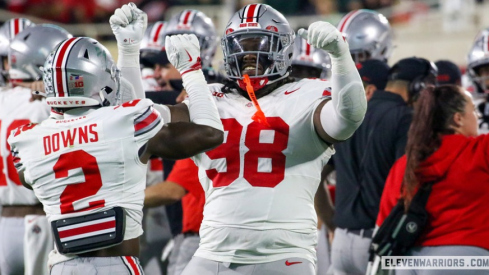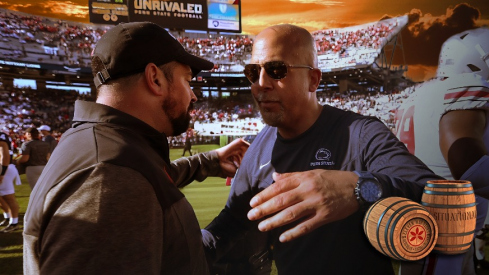Right now Ben Roethlisberger is probably the least liked person in the NFL, and with good reason. The numerous sexual assault stories surrounding him have become more than a case of "he said/she said," where oftentimes athletes are given the benefit of the doubt by fans, sometimes because they simply don't want to believe that a player they idolize could do something so reprehensible, or because they don't want their favorite team suffer due to one player's stupidity.
In any case, Roethlisberger has exhausted whatever good will even the most die hard of fans might have held for him due to his numerous off the field incidents (even to the point where the NFL
has suspended him for 6 games despite the fact that Roethlisberger has not been charged with a crime), and a recent
New York Times article, with quotes from many including Roethlisberger high school teammate and our second favorite OSU kicker of the 2000's, Josh Huston, sheds light on the kind of attitude that can lead to some pretty unforgivable behavior by a man with a lot of money and a lot of entitlement.
Full disclosure: my hometown is about 20 minutes away from Miami of Ohio, and Roethlisberger was more or less the biggest thing to happen to that football program since Bo Schembechler. The exploits of his football career on the field with the Redhawks were omnipresent in the local newspaper, as were rumors about his attitude toward life off the field. Huston's comments in the NYT story are pretty typical of what had been going around:
Roethlisberger’s senior year of high school, when he became the starting quarterback and set state records, had its share of drama. Some of his receivers felt forced to befriend Roethlisberger out of fear that he would not throw the ball to them, said Josh Huston, a former teammate who went on to be a kicker for Ohio State.
This kind of arrogance is not uncommon in star players, and sometimes it's even accepted if said player is an otherwise good person. The article mentions that Roethlisberger has enormous respect for his family, and that he was at one point a humble and polite individual. Which, for all I know, could have been absolutely true. But, according to Huston,
Huston said he rarely spent time with Roethlisberger because he did not like his swagger, trash talk and competitiveness beyond sports.
“I think he felt like he needed more respect than what he got off the field for being a good athlete,” Huston said in a telephone interview.
This is the problem, and the larger point that I'm trying to make with this post, which I guess serves as something of a companion post to what Luke wrote about Clarett on Thursday. Being an athlete, excelling at sports, attaining fame and fortune; these are all things that can do a lot for a person, especially in their bank accounts or in their own minds. But as both Clarett and Roethlisberger have had to learn the hard way, the world does not and should not change the rules for you because you happen to play a sport very well. Clarett, at 27 years old, appears to have finally figured this out and seems to be getting his life back on track. And I hope more than anything that he can find real happiness and fulfillment in life by doing so.
At 28, Roethlisberger still seems to be learning his lesson, and hopefully he takes heart some words from the man himself, Jim Tressel (in
The Winners Manual):
Goals are important, but it’s important to understand that people are not defined by their goals and whether or not they reach them. A win or a loss does not make you or me a better or worse human being. This is where, in our society, we’ve so easily lost perspective on the truth about who we are. We have to separate who we are from what we do. With our players, it’s vital to distinguish between “purpose” and “goals,” ... Understanding the difference between purpose and goals is essential to understanding the true definition of success.
Preach on, Senator.


